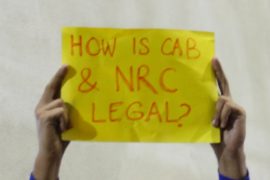The ‘digital age,’ heralded as a bastion of knowledge and empowerment, has cast a long shadow over children. With their innate curiosity and malleable minds, children are particularly vulnerable to the deceptive allure of online falsehoods.
Misinformation is spreading rapidly like a virus, infecting young minds with harmful narratives, prejudices, and misconceptions. The consequences are far-reaching, impacting their physical, emotional, and intellectual growth. The spread of misinformation has become a formidable threat, a crisis that demands our immediate attention.
One of the most alarming impacts of online misinformation is its corrosive effect on children’s mental health. Young minds struggling to make sense of the world have become susceptible to feelings of isolation, fear and hopelessness. The cycle of negativity, driven by sophisticated algorithms, is causing depression, anxiety disorders, and suicidal thoughts.
Exaggerated news, fear-mongering, and conspiracy theories create an atmosphere of anxiety and uncertainty. A 2023 National Institute of Mental Health and Neurosciences (NIMHANS) study revealed a 20 per cent increase in reported anxiety and depression among teenagers in India in the past five years.
A 2023 UNICEF survey highlights that up to 75 per cent of Indian children report difficulty judging the integrity of online information. This makes them vulnerable; they become easy targets for manipulation. Moreover, the pressure to conform to online trends and ideals can erode self-esteem and body image, fostering a culture of comparison and dissatisfaction.
The proliferation of false information undermines the very foundation of education. When students are exposed to inaccurate or misleading content, their ability to think critically and evaluate information is compromised, which hampers their academic performance and hinders their potential to become informed and engaged citizens.
Misinformation also poses a grave threat to children’s safety and well-being. The online world, teeming with predators who exploit the vulnerabilities of young people, can be used to manipulate, groom and lure children into dangerous situations. Furthermore, misinformation about health and nutrition can have hazardous consequences. Fake news about vaccines, for instance, can lead to outbreaks of preventable diseases, putting children at risk.
The erosion of trust is another consequence of online misinformation. As children are bombarded with conflicting narratives, their ability to discern fact from fiction diminishes, leading to a general distrust of institutions and, in some instances, even their families.
A society built on mistrust has profound implications for future generations. Ergo, addressing the crisis of misinformation requires a multi-faceted approach.
First, it is essential to prioritise media literacy. Children must be taught the fundamentals of identifying biases, verifying sources and critically evaluating information. This education should begin early and must be integrated into the school curriculum.
Second, technology companies must be legally responsible for the content published on their platforms. While freedom of speech is a fundamental right, it should not come at the expense of public safety and well-being. Social media platforms must implement stricter measures to combat the spread of misinformation, such as fact-checking mechanisms, algorithm transparency, and removal of harmful content.
Third, governments and policymakers must play a crucial role in creating a supportive environment for media literacy—and digital citizenship. Investing in research, developing clear guidelines, and collaborating with industry stakeholders are essential steps.
Finally, it is imperative to foster a culture of truth and accountability. Journalists, educators, and parents must collaborate to promote accurate and reliable information. We can create a secure and more informed digital landscape for children by upholding the values of honesty, integrity and transparency.
The battle against misinformation is a complex challenge that requires sustained effort and collaboration. It is essential to take decisive action to safeguard children from the harmful effects of online falsehoods and build a brighter future for future generations.
-30-
Copyright©Madras Courier, All Rights Reserved. You may share using our article tools. Please don't cut articles from madrascourier.com and redistribute by email, post to the web, mobile phone or social media.Please send in your feed back and comments to [email protected]











